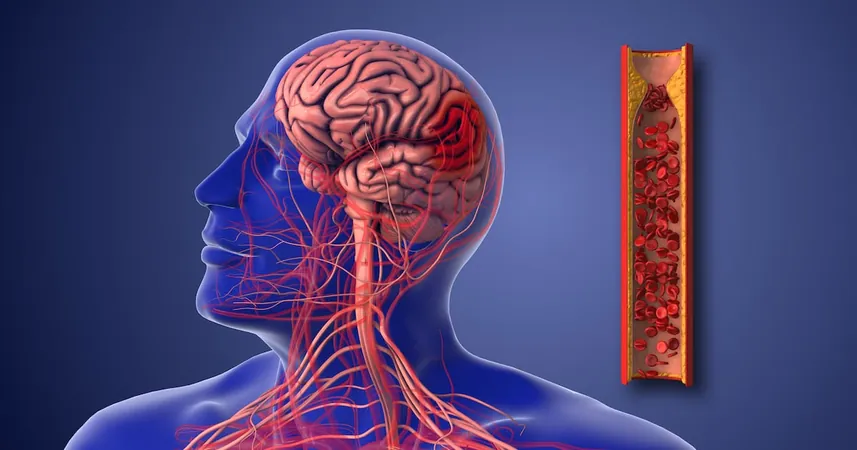
Can Flavanols Save Your Brain from the Dangers of Sitting Too Long?
2025-09-15
Author: Sarah
Sitting's Toxic Toll on the Brain
Did you know that prolonged sitting could seriously harm your brain? Recent findings from researchers at the University of Birmingham reveal alarming trends regarding blood flow in the brain amongst older adults compared to their younger counterparts. When sitting for extended periods, older individuals experienced an increase in retrograde blood flow, an unhealthy shift that wasn’t significantly countered, despite the consumption of flavanol-rich beverages.
The Power of Flavanols
Flavanols, found abundantly in foods like green tea, black tea, and unprocessed cocoa, might just be the guardian your brain needs. While the study administered a hefty dose of 695 mg of flavanols, it's worth noting that this can also be achieved by enjoying two cups of your favorite tea or indulging in fruits like apples and berries.
Sitting: The Silent Brain Killer
The dangers of sedentary behavior are staggering. With both young and older adults averaging over 7 and 9 hours of sitting per day, it's no wonder that cognitive impairments and conditions like dementia are on the rise, particularly when coupled with poor dietary habits. This inactivity can lead to increased stiffness in major arteries, diminishing crucial blood flow to the brain.
The Immediate Effects of Sitting
It turns out that the impacts of sitting can manifest rapidly. Research indicates that just 1 to 8 hours of uninterrupted sitting can reduce blood flow velocity in significant brain arteries, suggesting a dire need for actions to combat long periods of inactivity.
Flavanols vs. Sitting-Induced Damage
The study suggests that flavanols might counteract the detrimental effects of sitting by enhancing nitric oxide production, promoting better blood flow. However, researchers are calling for more comprehensive studies to validate this potential protective mechanism.
Inside the Study
In a carefully designed randomized, double-blinded, placebo-controlled trial, 40 healthy younger males aged 18 to 45 and 20 older adults aged 65+ participated to investigate the effects of flavanols on blood flow. Participants abstained from high-polyphenol foods for 24 hours before testing, consuming either a high-flavanol or low-flavanol cocoa drink before two hours of sitting.
Measuring carotid artery blood flow before and after the sitting session revealed troubling declines in anterograde blood flow, particularly among older adults who additionally showed increases in retrograde blood flow – a concerning trend.
The Bottom Line: A Call for Action
Flavanols could potentially mitigate the adverse effects of sitting on brain blood flow in older adults, but the call for larger, well-powered studies remains. It’s time to rethink our sedentary habits and consider how simple dietary changes, like incorporating flavanol-rich foods, could protect our brains from the perils of prolonged sitting.




 Brasil (PT)
Brasil (PT)
 Canada (EN)
Canada (EN)
 Chile (ES)
Chile (ES)
 Česko (CS)
Česko (CS)
 대한민국 (KO)
대한민국 (KO)
 España (ES)
España (ES)
 France (FR)
France (FR)
 Hong Kong (EN)
Hong Kong (EN)
 Italia (IT)
Italia (IT)
 日本 (JA)
日本 (JA)
 Magyarország (HU)
Magyarország (HU)
 Norge (NO)
Norge (NO)
 Polska (PL)
Polska (PL)
 Schweiz (DE)
Schweiz (DE)
 Singapore (EN)
Singapore (EN)
 Sverige (SV)
Sverige (SV)
 Suomi (FI)
Suomi (FI)
 Türkiye (TR)
Türkiye (TR)
 الإمارات العربية المتحدة (AR)
الإمارات العربية المتحدة (AR)